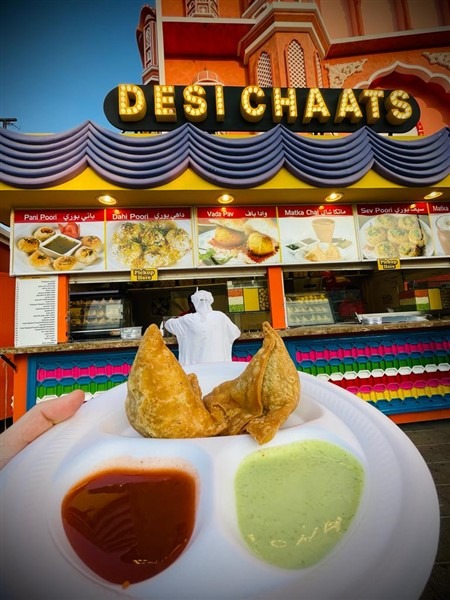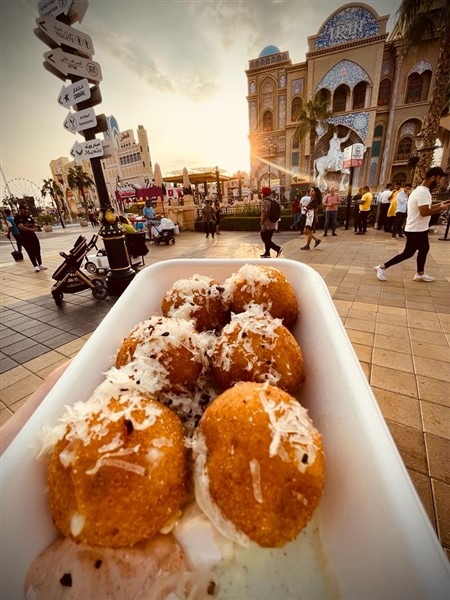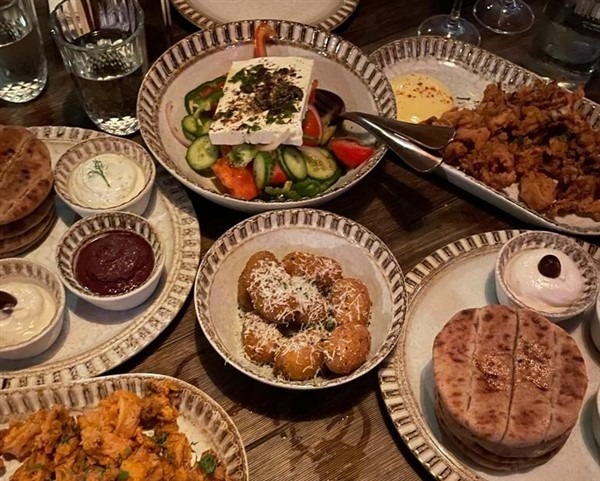Introduction:
In the world of travel and gastronomy, a rising trend has captured the hearts (and taste buds) of adventure-seekers and food enthusiasts alike – the Food Tour. But what is a Food Tour, and why has it become such a beloved experience for foodies and those who crave more than just a meal? Let’s embark on a delectable journey to uncover the essence of culinary tourism and Food Tours.
What to Expect on a Food Tour:
Embarking on a Food Tour is not merely a culinary journey; it is an immersive experience that tantalises the taste buds, stimulates the senses, and unveils the rich tapestry of a destination’s culinary culture. Whether you’re a seasoned traveller or a local looking to discover hidden gems, here’s a glimpse of what to expect on a Food Tour.
Diverse Culinary Exploration
One of the primary delights of a Food Tour is the opportunity to sample a myriad of flavours and dishes. Imagine walking through bustling markets, quaint streets, or vibrant neighbourhoods, each offering a unique culinary story. From street food stalls to upscale restaurants, a Food Tour encompasses a diverse range of establishments, providing a comprehensive overview of a destination’s gastronomic landscape.
Cultural Immersion
Beyond the plates and bowls, a Food Tour is a cultural immersion. Engage with local chefs, passionate about sharing their culinary heritage. Visit family-owned businesses where age-old recipes are passed down through generations. The stories behind the dishes become as important as the taste itself, offering a profound understanding of the cultural nuances woven into the fabric of each bite.
Historical Insights
Food is a powerful storyteller, and on a Food Tour, each dish carries a historical narrative. Expect to visit iconic eateries with a legacy, where recipes have withstood the test of time. Explore the evolution of flavours influenced by migration, trade, and cultural exchange. Whether it’s a centuries-old spice market or a charming café with a storied past, the Food Tour unveils the history etched into the culinary landscape.
Local Interactions
Connecting with locals is a hallmark of any meaningful travel experience, and Food Tours provide the perfect avenue for such interactions. Meet the faces behind the food – from skilled chefs to charismatic street vendors. Ask questions, share stories, and gain insights into the community’s lifestyle. It’s not just about the food; it’s about the people who create it.
Unexpected Discoveries
One of the most exciting aspects of a Food Tour is the element of surprise. Be prepared to discover hidden culinary gems that may not be found in guidebooks. These could be tucked away in narrow alleyways or revealed through recommendations from seasoned locals. From lesser-known delicacies to innovative culinary fusions, a Food Tour often introduces participants to unexpected, delightful surprises.
Gastronomic Education
A Food Tour is not just a feast for the stomach but also for the mind. Gain insights into the culinary techniques, ingredients, and cooking traditions that define a region. Many Food Tours offer behind-the-scenes glimpses into kitchens, allowing participants to witness the artistry that goes into crafting each dish. It’s an educational journey that deepens appreciation for the culinary craft.
Memorable Experiences
Ultimately, a Food Tour is a collection of memorable experiences. Whether it’s a sunset dinner overlooking a picturesque landscape or a lively market filled with the aromas of spices, each moment contributes to a tapestry of memories. Expect to leave not only with a satisfied palate but also with a treasure trove of experiences that linger long after the last bite.
Types of Food Tours:
Walking Food Tours
- Explore neighbourhoods on foot while stopping at various eateries.
- Typically led by knowledgeable guides providing insights into the local food scene.
Culinary Workshops
- Hands-on cooking experiences where participants learn to prepare local dishes.
- Led by experienced chefs or culinary experts.
Tasting Events and Festivals
- Participate in community food celebrations featuring a variety of dishes.
- Often includes live entertainment, cultural performances, and culinary competitions.
Gourmet and Fine Dining Tours
- Visit upscale restaurants and gourmet establishments for a refined culinary experience.
- Sample signature dishes and experience high-end gastronomy.
Street Food Tours
- Explore the vibrant street food scene, trying local specialities from food carts and stalls.
- Offers a more casual and authentic experience.
Wine and Food Pairing Tours
- Combine tastings of local wines with perfectly paired food.
- Typically conducted in wine-producing regions, it provides insights into the art of pairing.
Chocolate or Dessert Tours
- Indulge in a sweet journey, sampling chocolates, pastries, and desserts from local confectioneries.
- Ideal for those with a sweet tooth.
Farm-to-Table Tours
- Visit local farms, markets, and artisanal producers to witness the sourcing of ingredients.
- Gain a deeper understanding of the farm-to-table concept.
Historical Food Tours
- Explore the culinary history of a region by visiting eateries with historical significance.
- Discover how food traditions have evolved over time.
Ethnic or Cultural Food Tours
- Dive into the diverse culinary offerings of a specific ethnic community or cultural group.
- Experience authentic dishes and learn about cultural food traditions.

Seafood Tours
- Focus on exploring the local seafood scene in coastal areas.
- Visit fish markets, and seafood restaurants, and enjoy fresh catches.
Vegetarian or Vegan Food Tours
- Catering to those with dietary preferences, these tours highlight the best vegetarian or vegan dishes in a city.
- Showcase plant-based culinary creativity.
Mystery or Progressive Dinner Tours
- Visit multiple restaurants in one evening, enjoying a different course at each location.
- Adds an element of surprise and variety to the dining experience.
Brewery and Beer Tasting Tours
- Explore local breweries, sampling craft beers and enjoying beer pairings with food.
- Ideal for beer enthusiasts interested in the brewing process.
Cheese Tasting Tours
- Delve into the world of cheese, visiting creameries and cheese shops.
- Sample a variety of artisanal cheeses paired with complementary accompaniments.
These types of food tours cater to a wide range of preferences, allowing participants to choose an experience that aligns with their culinary interests and preferences.
Benefits of a Food Tour:
Why choose a Food Tour over a conventional dining experience? The benefits are as diverse as the dishes themselves. Enjoy unique culinary experiences, access hidden gastronomic gems, and forge a deeper connection with the local community. Food Tours offer more than just a meal; they provide an immersive journey into the heart of a destination.
Planning a Food Tour:
Embarking on a food tour is a tantalising adventure that promises a journey through flavours, cultures, and culinary traditions. However, to ensure a seamless and enjoyable experience, strategic planning is essential. Here’s a comprehensive guide on planning a food tour that will leave your taste buds and travel senses fully satisfied.
1. Research Destinations:
Begin by identifying destinations renowned for their diverse and delectable culinary scenes. Consider cities or regions celebrated for specific cuisines or food specialities. Online travel platforms, food blogs, and recommendations from fellow food enthusiasts are valuable resources for pinpointing these gastronomic hotspots.
2. Seek Recommendations:
Gather recommendations from locals or seasoned travellers who have explored the culinary landscape of your chosen destination. Social media groups, forums, and travel apps often provide insights into hidden gems and must-try dishes. Personal recommendations add a layer of authenticity to your food tour.
3. Choose Reputable Tour Operators:
If you opt for a guided food tour, selecting a reputable tour operator is crucial. Look for operators with positive reviews, knowledgeable guides, and a track record of delivering exceptional culinary experiences. Research their itineraries, ensuring they align with your preferences and interests.
4. Consider Dietary Preferences and Restrictions:
Before finalising your food tour, consider any dietary preferences or restrictions you may have. Whether you’re a vegetarian, vegan, or have specific food allergies, communicate these requirements to the tour operator in advance. This ensures a tailored experience that caters to your culinary needs.
5. Book and Plan Logistics:
Once you’ve chosen a destination and a tour operator, proceed to book your food tour. Pay attention to logistical details such as meeting points, tour durations, and any specific instructions from the operator. Plan your itinerary to accommodate the food tour seamlessly into your travel schedule.

6. Dress Comfortably:
Food tours often involve walking, exploring markets, and navigating diverse culinary landscapes. Dress comfortably, considering the weather and any physical activities involved. Comfortable shoes are a must, especially if your tour includes walking through neighbourhoods or markets.
7. Bring an Appetite and an Open Mind:
The essence of a food tour lies in savouring a variety of dishes and embracing new culinary experiences. Arrive with an open mind, ready to try flavours you may not have encountered before. Engage with locals and fellow tour participants, fostering a sense of community and shared gastronomic discovery.
8. Capture the Moments:
Bring a camera or smartphone to capture the culinary delights and the vibrant atmosphere of the places you visit. Documenting your food tour allows you to relive the experience and share it with others. Consider creating a travel journal or blog to chronicle your culinary adventures.
9. Stay Flexible:
While planning is crucial, leave room for spontaneity. Food tours may unveil unexpected culinary gems or opportunities to explore beyond the initial itinerary. Embrace the spontaneity of travel, allowing yourself to deviate from the plan if an enticing local recommendation arises.
10. Reflect and Share:
After the food tour, take a moment to reflect on the flavours, stories, and connections you’ve encountered. Share your experiences with friends, family, or fellow travellers. Your reflections contribute to the collective wisdom of food enthusiasts and may inspire others to embark on their own culinary adventures.
Conclusion:
As we wrap up this culinary expedition, the allure of Foodie Tours becomes evident. Beyond the joy of tasting diverse dishes, these tours offer a gateway to understanding the culture, history, and people behind the food. So, are you ready to add a dash of excitement to your next journey? Join the growing tribe of foodies and embark on a Food Tour – a gastronomic adventure that transcends the ordinary.
We invite you to share your own Food Tour experiences in the comments below. Bon appétit!










